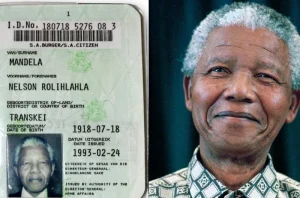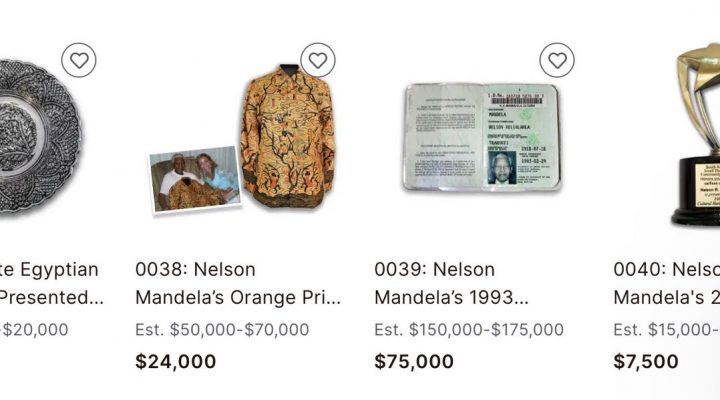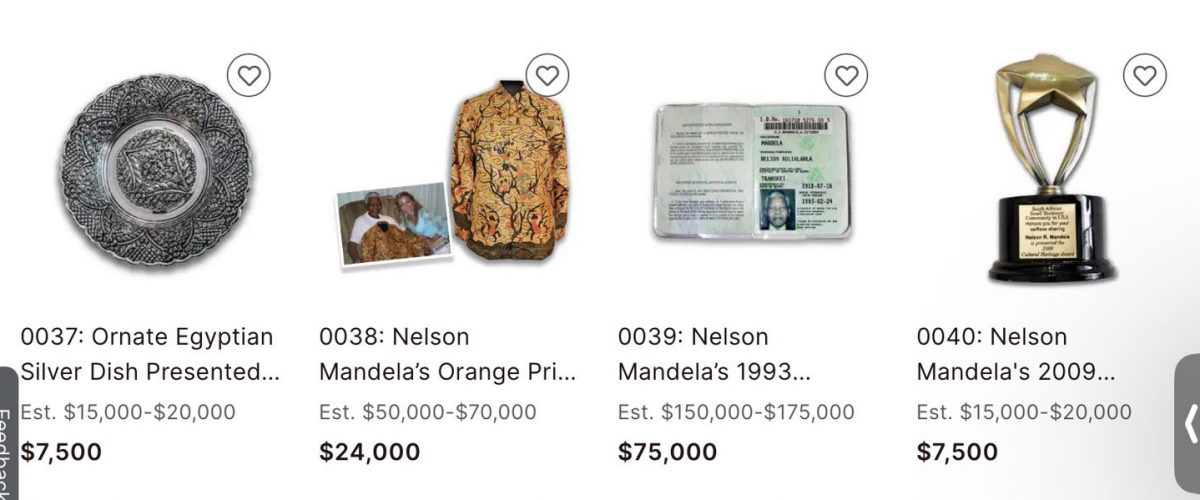At what point do a former president’s belongings cease to be his family’s property and become the state’s property? That’s the question an appeals court in South Africa seeks to determine regarding Nelson Mandela, the country’s post-apartheid ruler.
The case follows a court judgment that granted Makaziwe Mandela, eldest daughter of the former president, the right to auction about 70 of her father’s materials with Guernsey’s, a New York auction house.
After a three-judge panel of South Africa’s high court ruled in favor of Mandela, the South African Heritage Resources Agency appealed the judgment.
In a Jan. 19 report, the agency said: “The South African Heritage Resources Agency acknowledges and respects the recent judgment of the high court relating to the unpermitted export for exhibition or sale on auction of items associated with former President Rolihlahla Nelson Mandela.” It adds that the agency’s commitment to upholding heritage preservation principles is unwavering but “out of concern regarding the potential impact of the judgment on the preservation of heritage objects in South Africa,” SAHRA had joined the Department of Sport, Arts and Culture and the Robben Island Museum to appeal the ruling.

One of the items that was to be auctioned.
The auction had been scheduled to take place in the United States Feb. 22 but now has been suspended pending the outcome of the case.
According to a Jan. 30 report by The Guardian, items to be auctioned include Mandela’s “book” — his identification document from his imprisonment — his iconic Ray-Ban sunglasses and “Madiba” shirts, personal letters he wrote from prison, a blanket given to him by former U.S. President Barack Obama and his wife, Michelle, and a champagne cooler given to him by former U.S. President Bill Clinton.
Mandela spent 27 years in jail as a prisoner of the former apartheid regime in his country before being released Feb. 11, 1990. Four years after gaining freedom, he was elected president of South Africa under the African National Congress Party. He served as president from 1994 to 1999 and died in 2013 at age 95.
Apart from his anti-apartheid struggle, Madiba, as he was fondly called, did not fall for the temptation to extend his stay in power by seeking re-election even when he was constitutionally allowed to do so. He was a rare example among many African leaders who, to this day, seek to prolong their stays in power.
According to the Nelson Mandela Foundation, he had a big family: two daughters and two sons with his first wife, Evelyn Mase, and two daughters with his second wife, Nomzamo Winnie Madikizela. He had four stepchildren from his marriage to Graca Machel. Only three of his children are still alive — his daughters Makaziwe, Zenani and Zindzi. He is survived by them and 17 grandchildren and 13 great-grandchildren.
The sale of these items was intended to help fund a memorial garden.
Anthony Akaeze is a Nigerian-born freelance journalist who lives in Houston. He covers Africa for BNG.


